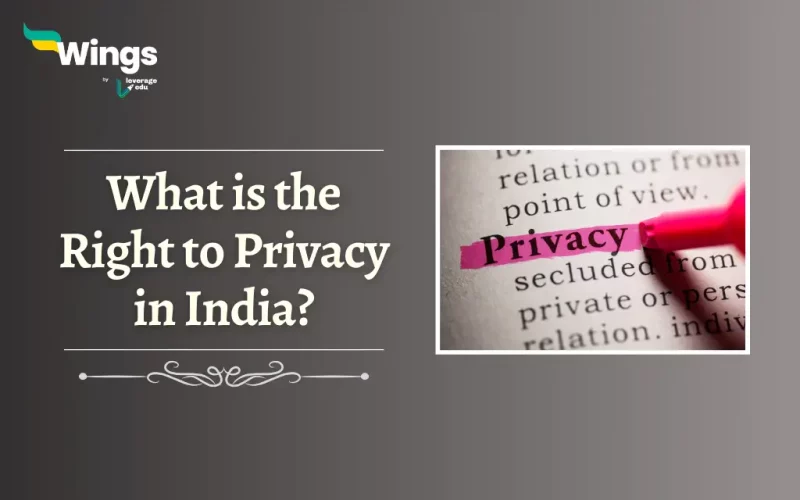The Right to Privacy and Family is the newly added Fundamental Right of India under the Indian Constitution. It came into effect after the case K.S. Puttaswamy vs. Union of India in 2017. Furthermore, this case challenged the Constitutional validity of the Aadhaar-based biometric system. Additionally, it made the Supreme Court of India accept the Right to Privacy as one of an individual’s Fundamental Rights. Therefore, the purview of Article 21 was expanded by the Court. Thus, along with the Right to Life and Liberty, the Right to Privacy is also mentioned in this Article. Moreover, Article 17 under Part III of the Indian Constitution deals with our Fundamental Rights, and the newest addition to it ultimately makes the Right to Privacy a Fundamental Right. Read on to learn about What is Right to Privacy in India, Right to Privacy comes under which article and Right to Privacy Examples in India!
Right to Privacy Comes Under Which Article?
Table of Contents [show]
The Supreme Court of India affirmed that the Right to Privacy will be the new Fundamental Right. In addition, the Right to Privacy comes under Article 21 of the Indian constitution. This Right is related to the Right to Life and Liberty.
Also Read: Who Can Suspend the Fundamental Rights of Indians?
Supreme Court Judgment
The Supreme Court gave judgment on this case in 2017. Although Article 21 specifically does not mention the Right to Privacy, however, the Supreme Court of India has extended its meaning.
| Feature | Description |
| Source | Article 21 and Part III of the Constitution |
| Protection | Intrinsic part of the right to life and personal liberty |
| Purpose | Safeguards individual autonomy and control over vital aspects of life |
| Limitation | Not absolute, subject to reasonable restrictions |
| Restrictions Test | The law must meet 3 requirements: |
| Legality: Lawful basis exists | |
| Need: Justified by legitimate state aim | |
| Proportionality: Rational connection between goals and methods |
Right to Privacy Examples
Furthermore, there have been cases in the news wherein there seems to be a violation of our Right to Privacy:
- There have been instances of hidden cameras being found in hotel rooms or changing rooms.
- Debates have arisen around the use of facial recognition technology by the Government, thus raising concerns about mass surveillance.
- Cases of unauthorized access to Aadhaar data have also highlighted the potential for privacy violations associated with the program.
Related Blogs
| Decoding the New Education Policy 2023 in India | What is Judicial Activism? |
| What is Indian Foreign Policy? | What is Appellate Jurisdiction? |
| National Investigation Agency | What is a Writ of Prohibition? |
This is everything about the Right to Privacy in India. Moreover, you may even read more blogs and empower yourself with knowledge regarding Civics and Polity!
 One app for all your study abroad needs
One app for all your study abroad needs















 45,000+ students trusted us with their dreams. Take the first step today!
45,000+ students trusted us with their dreams. Take the first step today!
